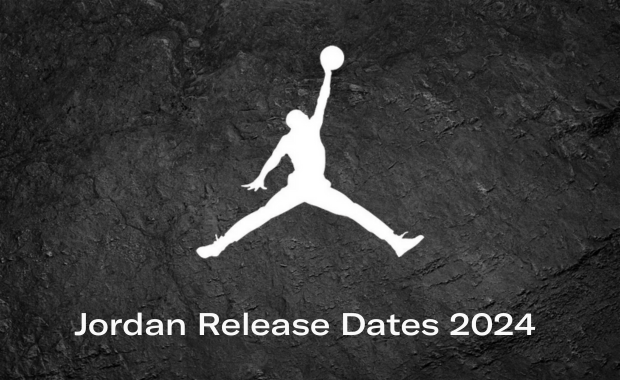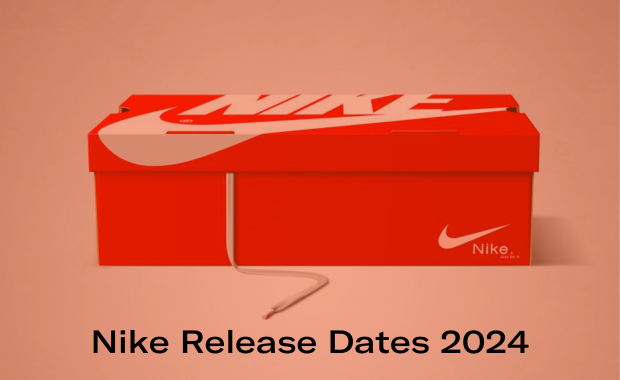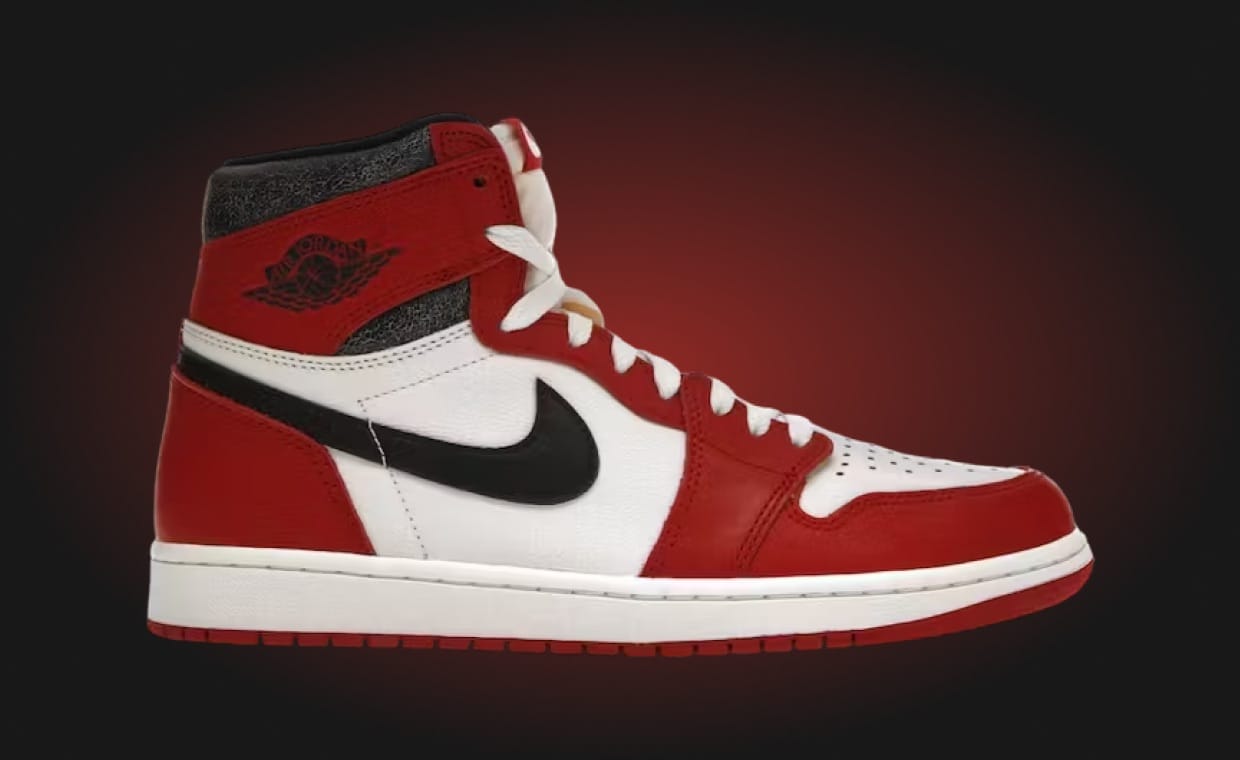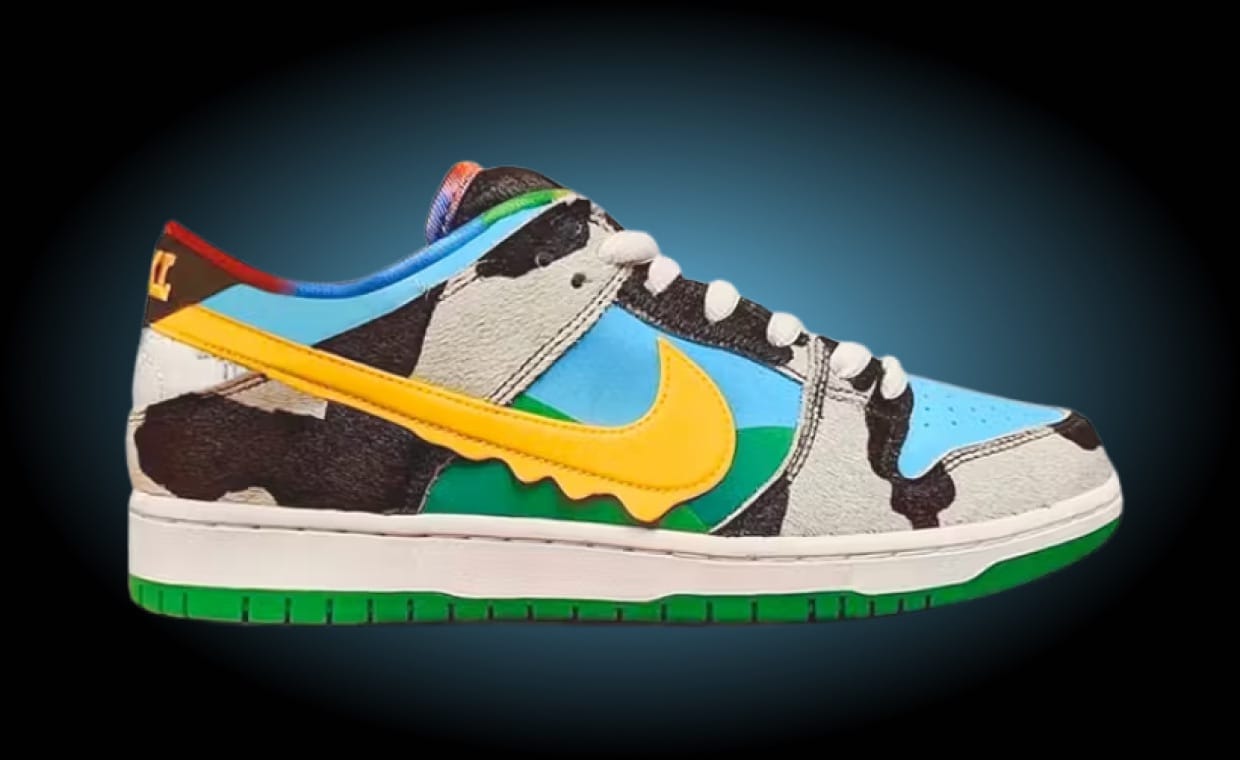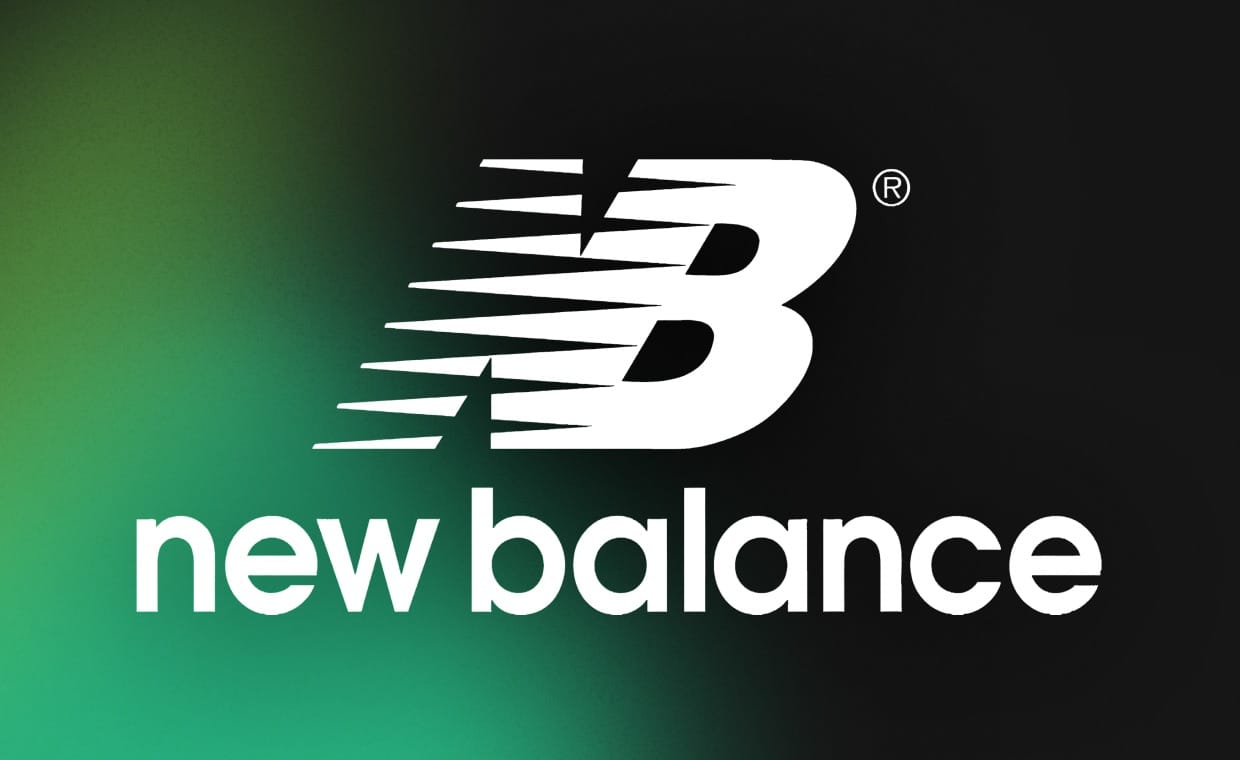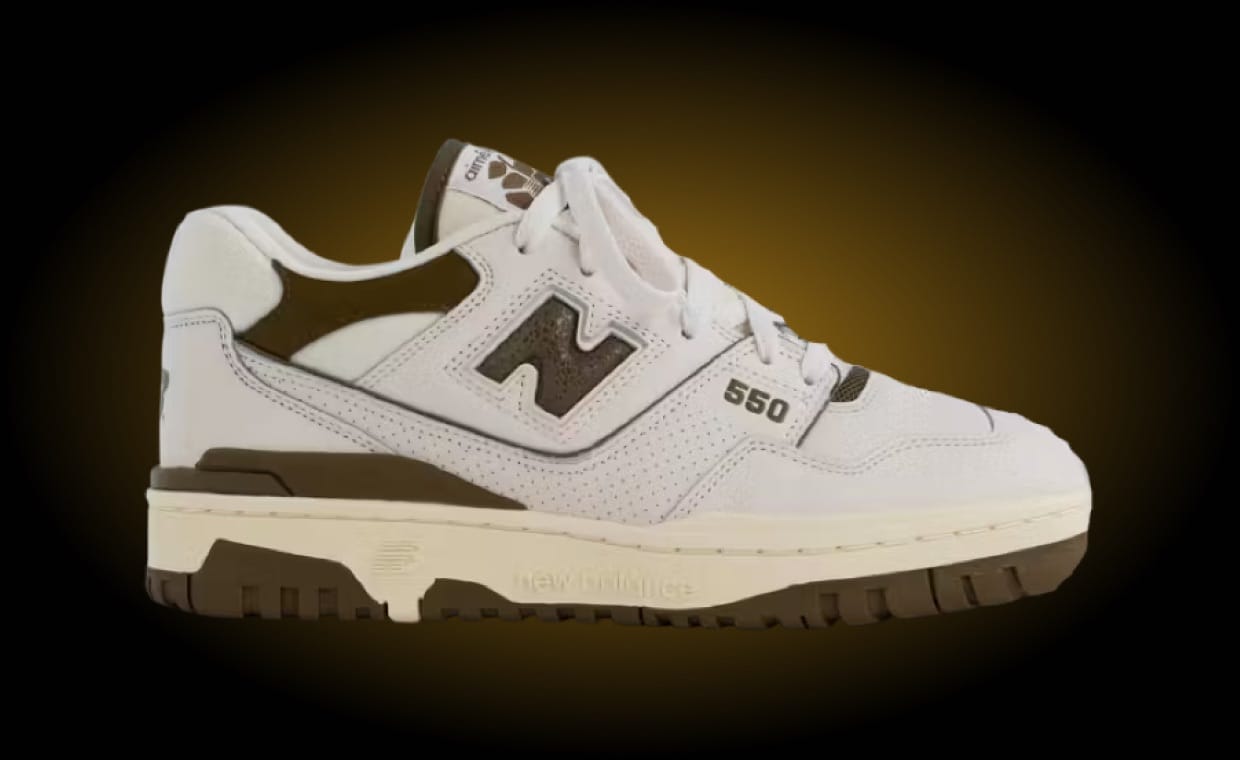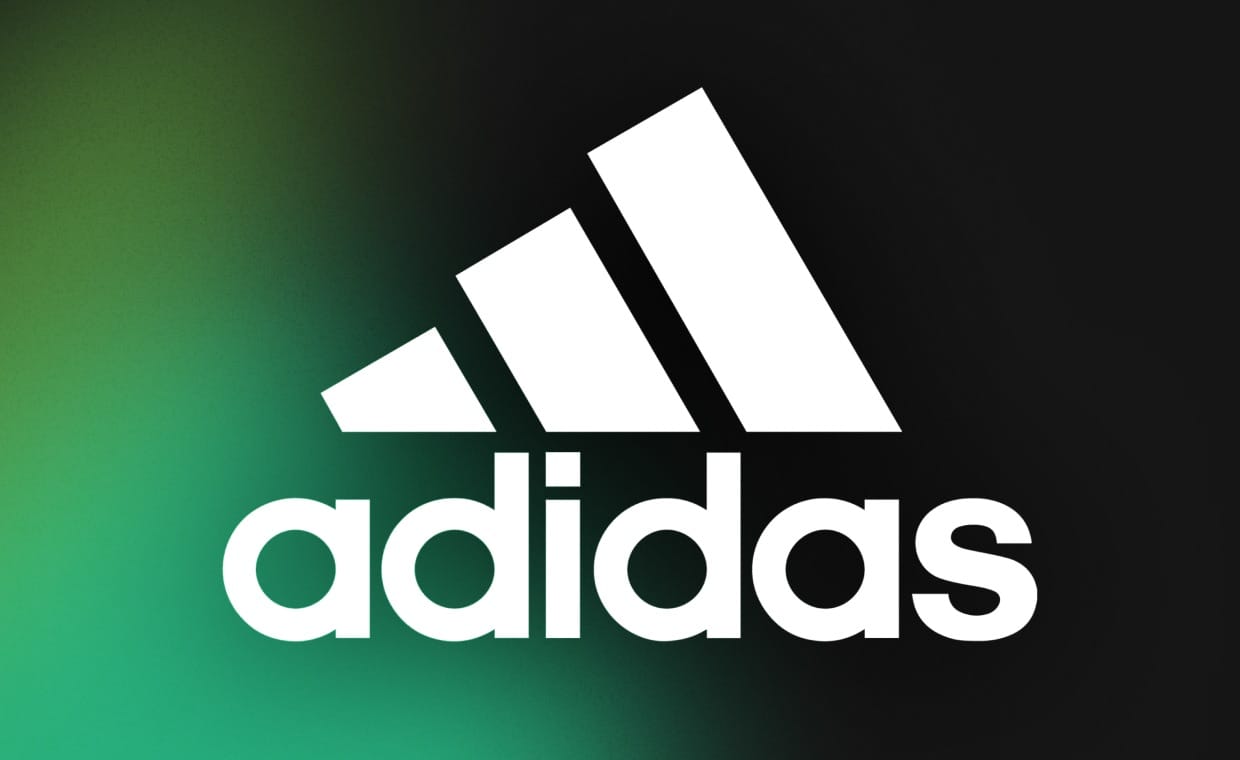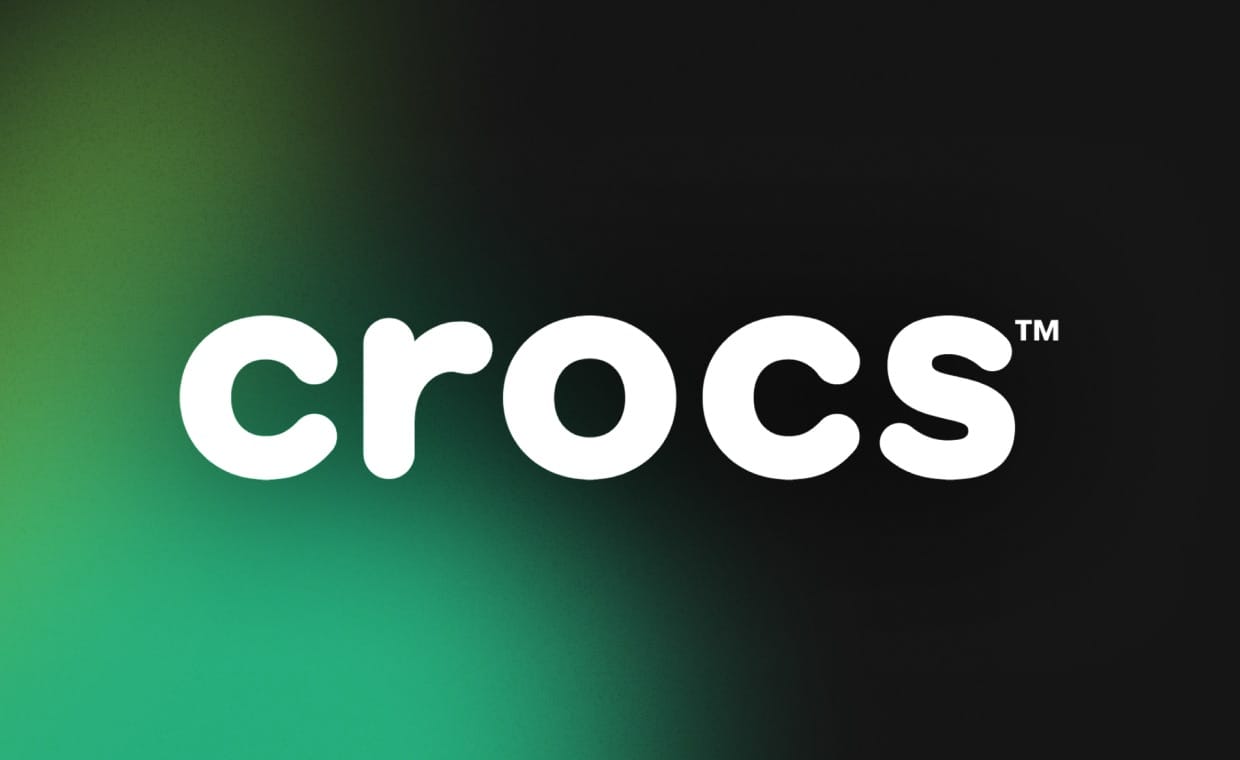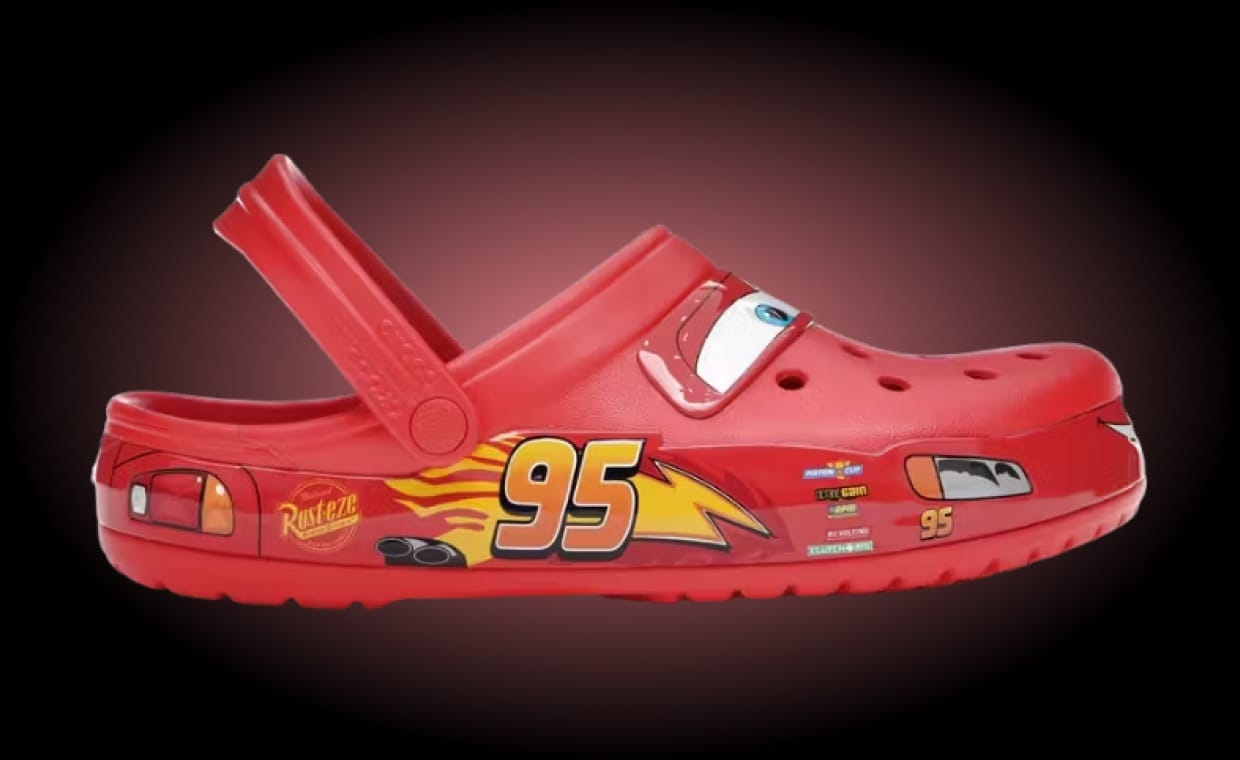StockX Fires Back at Nike In Sneaker NFT Lawsuit
Published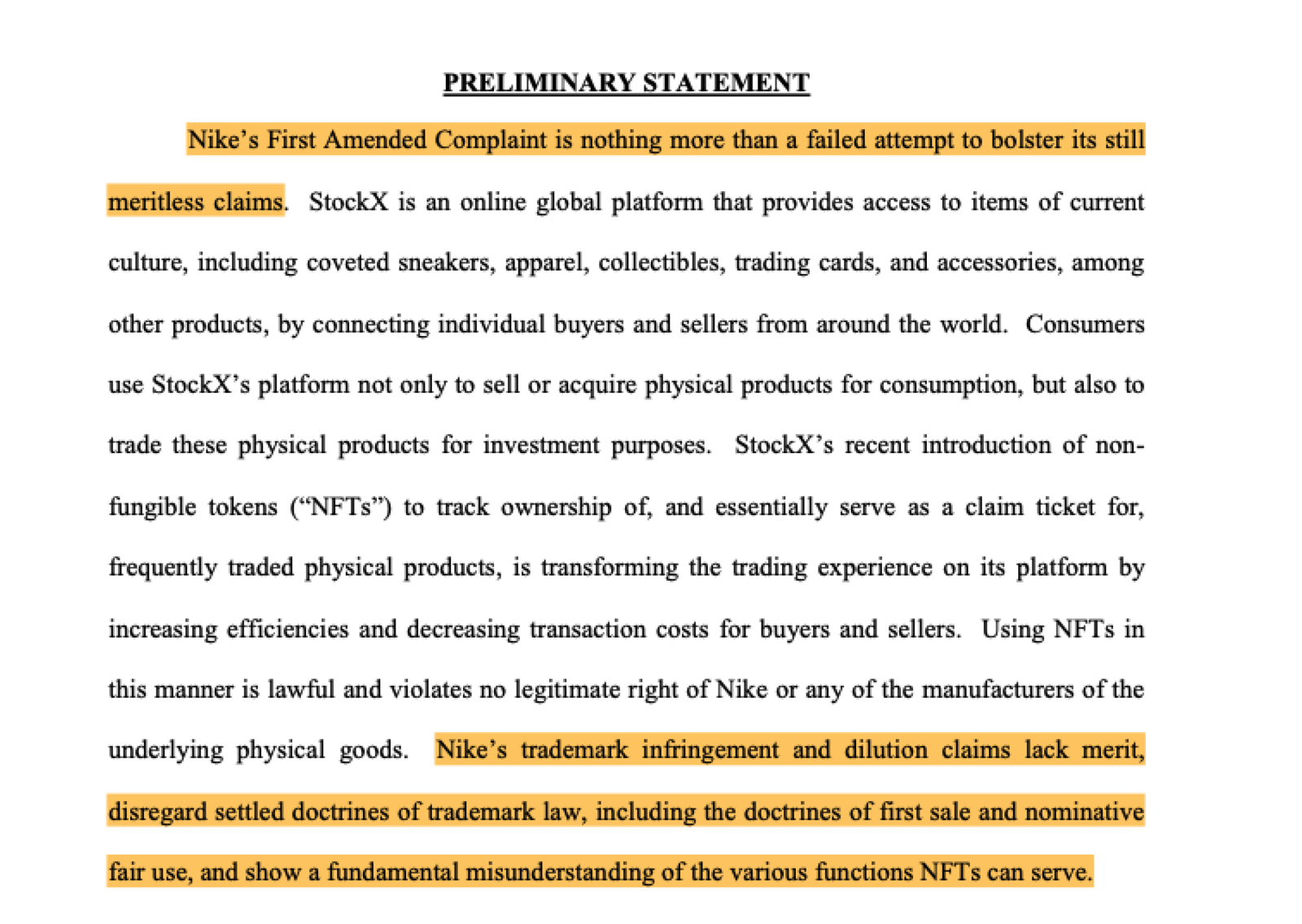
StockX vs. Nike lawsuit background and timeline
Back in January, StockX launched their Vault NFT Program - a new service tying non-fungible tokens (NFTs) to physical sneakers stored in StockX’s facilities, allowing users to buy, sell, and trade on-platform using underlying blockchain technology.” Less than a month later, Nike sued the resale giant over claims of trademark infringement through the sales of its Vault NFTs representing Nike sneakers. Shortly thereafter, StockX responded to the suit, citing Nike’s claims as “baseless…misleading” and “lack[ing] merit.” Fast forward to the middle of May, when Nike escalated its original complaint against StockX, tacking on claims of counterfeiting and false advertising after the Swoosh claimed to have purchased and received four pairs of counterfeit sneakers via the resale platform - thus calling into question the legitimacy of StockX’ platform which promises users ‘Guaranteed Authenticity’.
StockX fired back on Monday and didn't hold back.
That brings us to Monday's court filing in which StockX vehemently denied Nike’s latest accusations - defending its authentication process and firing back against the sportswear giant, claiming the complaint is “nothing more than a failed attempt to bolster its still meritless claims.” In its response, StockX doubled down on its “rigorous authentication process," describing how “authenticators combine their expert knowledge and training with proprietary, AI-enhanced machine learning” to confirm the authenticity of products sold on the marketplace. While we don’t learn anything further about the proprietary process, StockX goes on to state that it has invested millions of dollars to combat counterfeiting - employing more than 300 authenticators throughout the world, inspecting more than 30 million products, and ultimately preventing the sale of more than $60 million in counterfeit sneakers on its platform. Not holding back, the Detroit-based resale marketplace adds that Nike previously “sought to collaborate with StockX and has communicated confidence in the StockX authentication process” and even invited StockX to “join an anti-counterfeiting counsel within the United States Department of Homeland Security.” Noting its refund policy for “the rare case where a counterfeit product might find its way into a consumer’s hands,” StockX posits that “this fact alone undercuts any allegation that StockX is knowingly or intentionally dealing in such goods.” Clearly, StockX did not appreciate or agree with the Swoosh’ depiction and assessment of its authentication process.
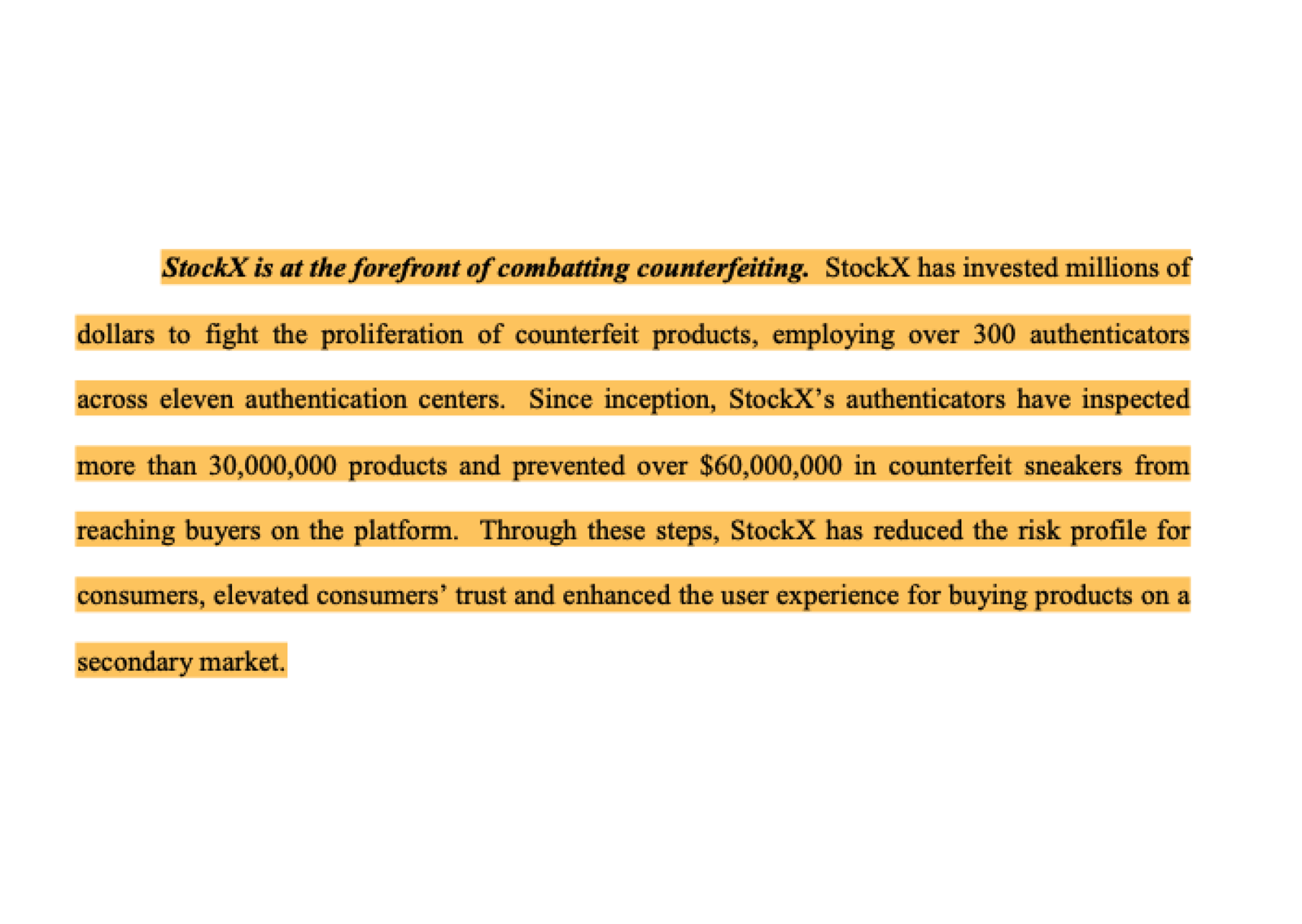
StockX's response to Nike's counterfeiting claims
StockX also responded to Nike's claims about having purchased and received four counterfeit pairs of Jordans from the platform from December through February, raising what they considered to be perhaps their most notable question in this court filing: “Why [didn't] [Nike] bring counterfeiting and false advertising claims in its original complaint” which was focused on trademark infringement, suggesting suspicious timing for these new allegations they deem meritless.
Ultimately, StockX argues that Nike’s position is that “resellers of products are legally prohibited from accurately describing the physical products they seek to trade using blockchain technology, contrary to trademark law.” StockX claims that its use of Nike’s images and descriptions is “no different than major e-commerce retailers who use images and descriptions of products to sell physical sneakers and other goods online.” Furthermore, StockX claims that Nike’s suit “threatens the legitimate use of NFTs as claim tickets not just by StockX, but by other innovators that also use NFTs to track title to physical goods held in a vault, such as fine art, whiskey, and wine.” One thing is for sure; I'm going to need a tall glass of wine after reading all of these legal docs. To summarize, StockX states that their Vault NFTs are “tied to the lawful resale of physical Nike products” and therefore, “StockX did not and does not need to obtain a license of authorization from Nike to accurately describe and depict the Stored Items underlying its Vault NFTs." To conclude their preliminary statement from Monday’s filing, StockX says they “look forward to defending its stellar reputation and to exposing why Nike, which once sought to collaborate in combatting counterfeits, now seeks anticompetitively to undermine StockX’s business model for making the secondary market safe and more efficient for consumers."
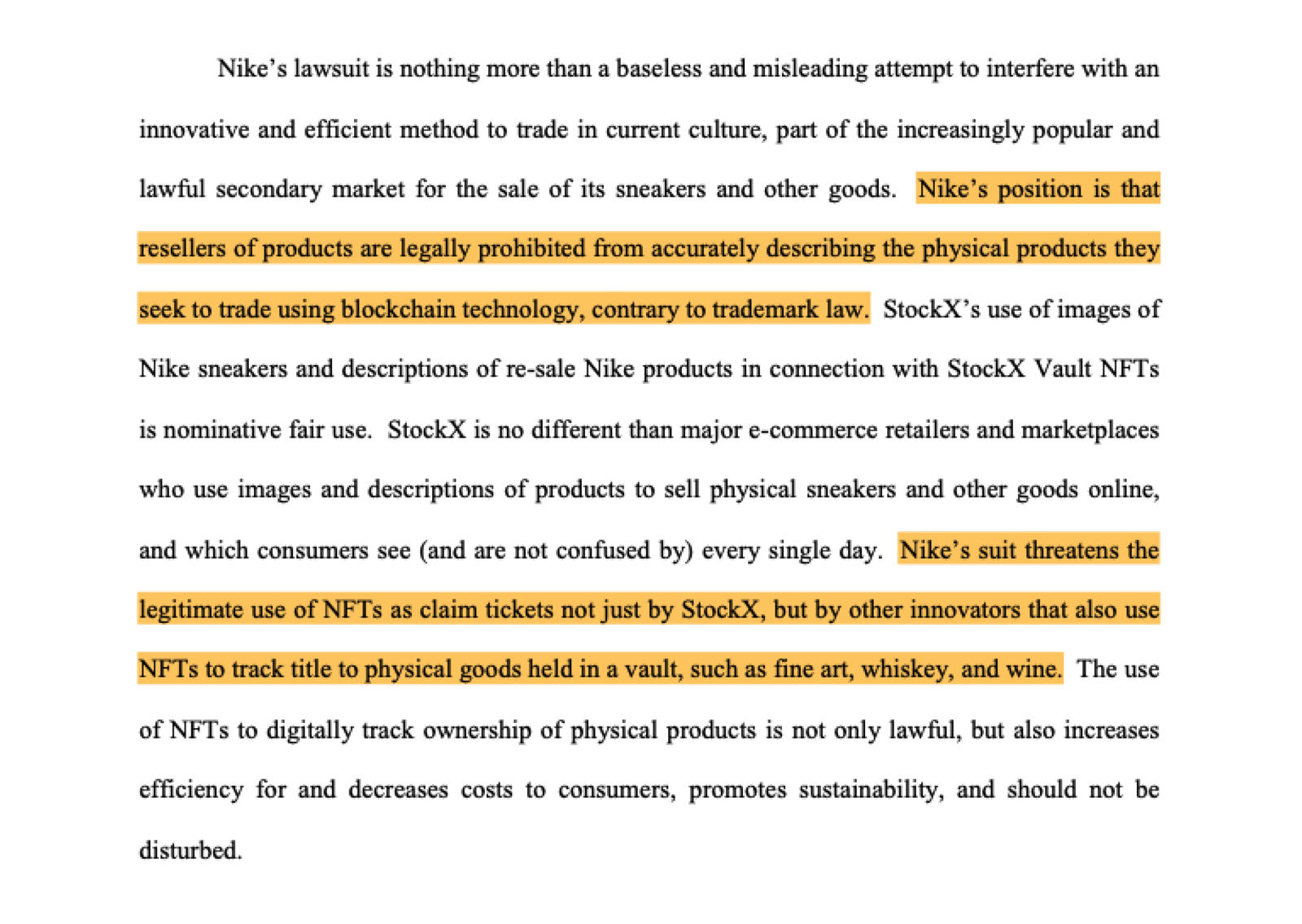
So, what exactly are these Vault NFTs?
Taking a step back, this legal dispute boils down to the question of "What exactly are these Vault NFTs?" Despite StockX website’s own definition of Vault NFTs as being “digital tokens providing unprecedented access and utility for our customers,” they also claim in Monday's court filing and throughout their Terms that Vault NFTs “have no inherent or intrinsic value” - which can be a bit confusing. Ultimately, StockX claims their NFTs are absolutely not virtual products or digital sneakers, but rather a digital receipt tied to a specific physical good that has been authenticated by StockX. Nike, on the other hand, posits that because the underlying (Nike) product behind a Vault NFT remains in StockX’s inventory until it is physically redeemed by its owner and can be traded and resold, the Vault NFTs should be considered separate products - not just digital receipts - and therefore believe that they should be subject to the infringement claims being brought forward in this suit.
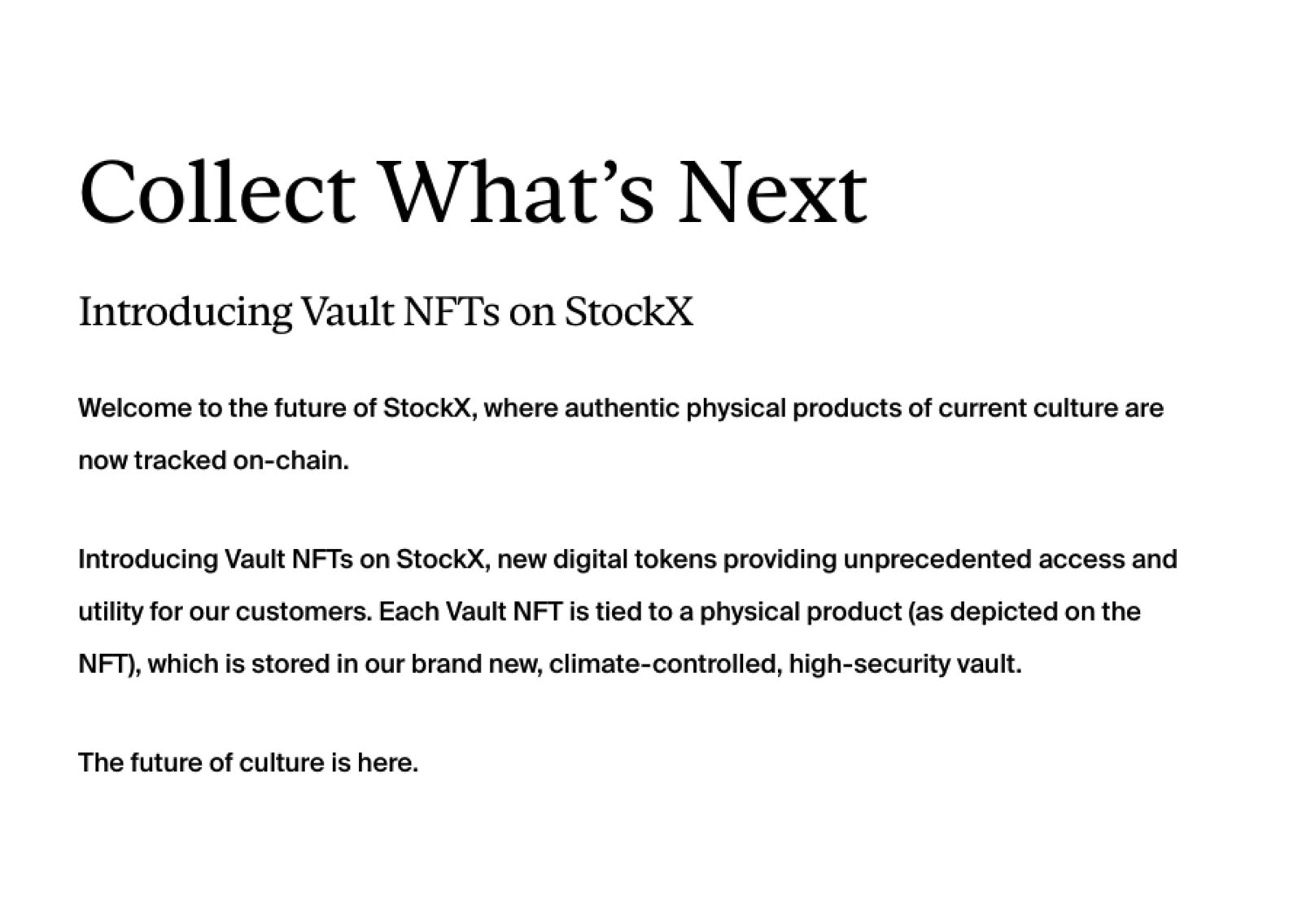
Given the facts we know and court documents we examined, here are some follow-up questions that we have.
If StockX’s argument is that a Vault NFT merely represents a “key” or “claim ticket” to its owner and holds “no inherent or intrinsic value”, then is there any utility behind said NFTs? And to take it a step further, why did StockX choose to utilize NFTs for this Vault program - could this have been accomplished without NFTs if they are just claim tickets?
If the core value or purpose of a StockX Vault NFT lies in its redeemability for its physical counterpart, why did StockX launch the Vault NFT program before the redemption process was active at all? As admitted in Monday's court filing and as we reported when the program initially debuted in January, “at the start of the Vault NFT program, the redemption process was temporarily unavailable.”
All of that to say, StockX' claim that Vault NFTs “have no inherent or intrinsic value” may be a difficult defense to stand on, namely because StockX has launched their Vault NFTs as limited edition series of digital mints via its resale marketplace - an environment driven by the forces of supply and demand, which inherently drive and affect price and ultimately value.
Something else interesting we learned from Monday’s filing from StockX was that, according to the resale marketplace’s Terms and Conditions, “through January 31, 2023, the Vault Services will be provided free of charge until and unless [a Vault NFT owner] elect[s] to have Stored Items shipped to [them] or [they] sell them to another buyer via the StockX platform” but that “[b]eginning February 1, 2023, StockX will charge a monthly fee for the provision of the Vault Services. According to those Terms, effective February 1, 2023, StockX will be charging a monthly fee for their Vault Services equal to 0.15% of the value of each Stored Item that you own, with a minimum monthly charge of ten (10¢) cents for each trading card and one ($1) for each pair of sneakers or other Stored Item” (excluding withdrawal fees, shipping costs, and any applicable taxes).
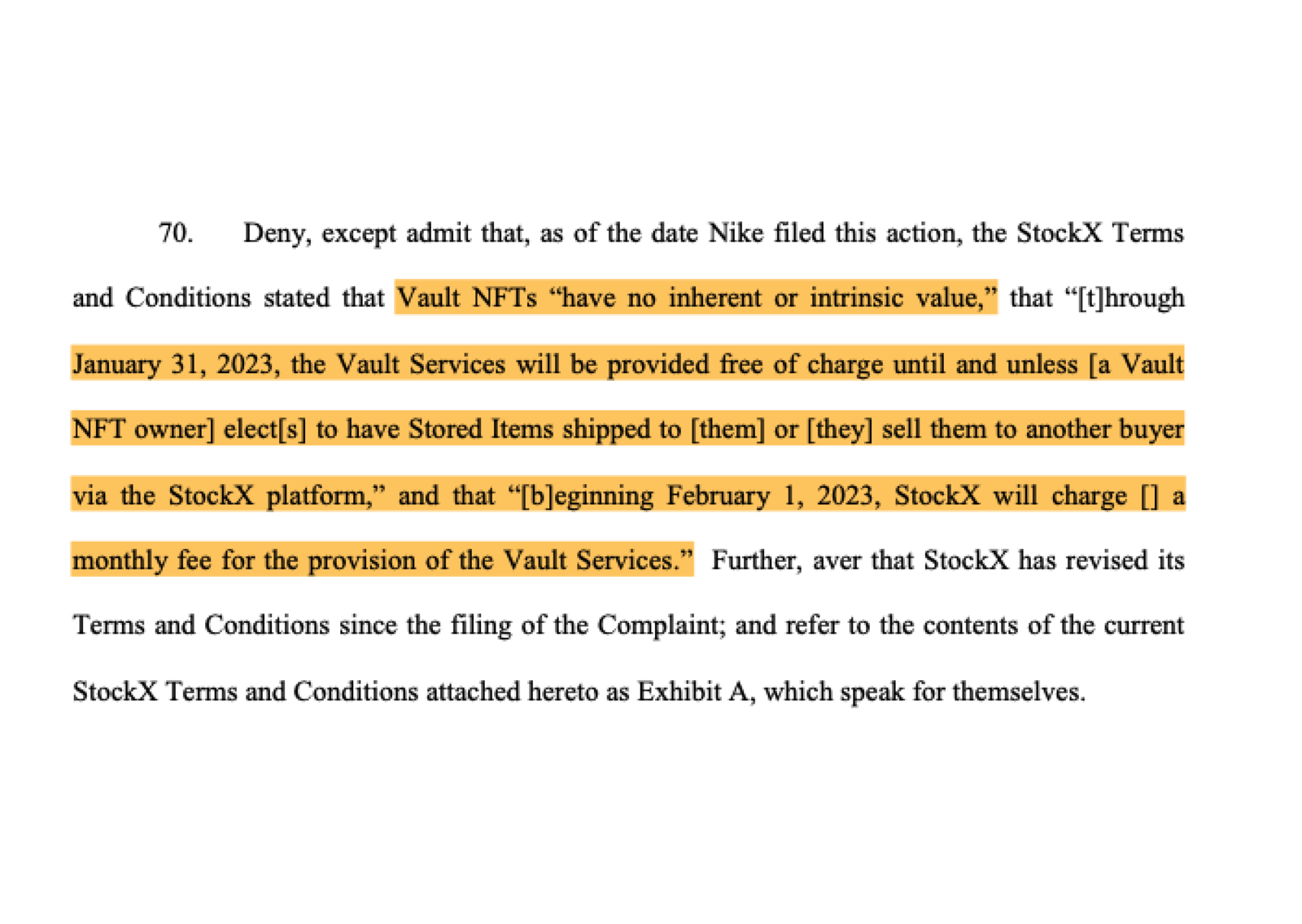
What's next?
While the future remains to be seen with how this legal battle ends up shaking out, this case could very well end up serving as precedent moving forward for determining how NFTs are defined by the law and how trademarks come into play in regards to secondary market sales of NFTs on resale marketplaces. For updates on Nike's monumental lawsuit against the multi-billion dollar resale platform StockX and for more sneaker news and release info, keep it locked to our Twitter and Mobile App.

Cole Townsend is a developer, designer, and Head of Tech at Sole Retriever. He does some writing on top of helping keep Sole Retriever running on web and mobile! In his spare time, you can find him out running. Cole was a graduate from Williams College.
